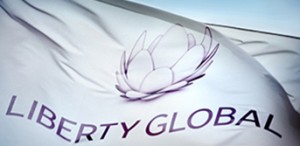
After more than 40 years of operation, DTVE is closing its doors and our website will no longer be updated daily. Thank you for all of your support.
Liberty Global will ‘lean’ towards shareholders with US$12bn Vodafone cash proceeds
 Liberty Global will have US$12 billion (€10 billion) in cash to potentially spend on M&A or share buybacks as well as paying off debt following its sale of assets to Vodafone, but with no obvious transaction on the horizon is likely to look to return a substantial portion to shareholders, according to president and CEO Mike Fries.
Liberty Global will have US$12 billion (€10 billion) in cash to potentially spend on M&A or share buybacks as well as paying off debt following its sale of assets to Vodafone, but with no obvious transaction on the horizon is likely to look to return a substantial portion to shareholders, according to president and CEO Mike Fries.
Fries, speaking at Goldman Sachs’ Communacopia Conference in the US, said there were “no transactions” that Liberty is currently looking at, and indicated that concern that Liberty would spend on acquisitions rather than return cash to stockholders was misplaced.
He said that the company was likely to “lean into stock”, with buybacks when the cash came through.
He said that as the company got closer to completion it would look more closely at “where we can put capital to work”.
Fries said that Liberty had got “six times its money” from Germany and had done well from the UK and from Switzerland. “We are pretty good allocators of capital”, he said. “We don’t do deals just to do deals. We are in this to create value, period,” he said.
Fries said that following completion of the Vodafone deal, Liberty would have its UK Virgin Media business, its “best cable asset” accounting 60% of operating cash flow and which “looks most like a US cable asset”, US$12 billion in cash and three other scale markets – the VodafoneZiggo JV, the Belgian Telenet business and the Swiss business.
“All of these are at varying stages of maturity,” he said. OCF growth would be a blend of the steady UK business and the other three markets “at various points in the inflection curve”. Fries said that Liberty had invested “a ton of money” and was now ready to take cashflow from its investments.
Fries said that investment was encouraged in the UK and that there was a reasonable degree of certainty that Liberty would be able to get a return on its investment in Project Lightning.
Fries said ARPU in Europe is lower from video services in particular, although margins are higher. Free broadcasting is stronger and OTT TV is less developed, he said. Liberty’s video business is declining but much “more slowly” than the US.
Liberty was focusing on single integrated platforms across its footprint, he said, focusing on its EOS and Connect boxes and a single delivery platform.
Fries said Liberty would continue to make “small investments” in content that “don’t add up to much” because content in Europe is primarily local, he said. He said that the company would not “bet the margins” on big content investments. Being an aggregator makes more sense, he said.
“Europe and the US are different…every market is different and the approach we are taking is the right one,” he said.
Fries said that Liberty’s transaction with Vodafone involving the sale of its German and central European networks is a “win-win” for Liberty and Vodafone. He said that the reduced scale of the company’s total operation would not have an adverse impact on the company. Liberty would continue to support the businesses it was exiting for a period of time gaining US$200 million plus of revenue for a period of years”.


